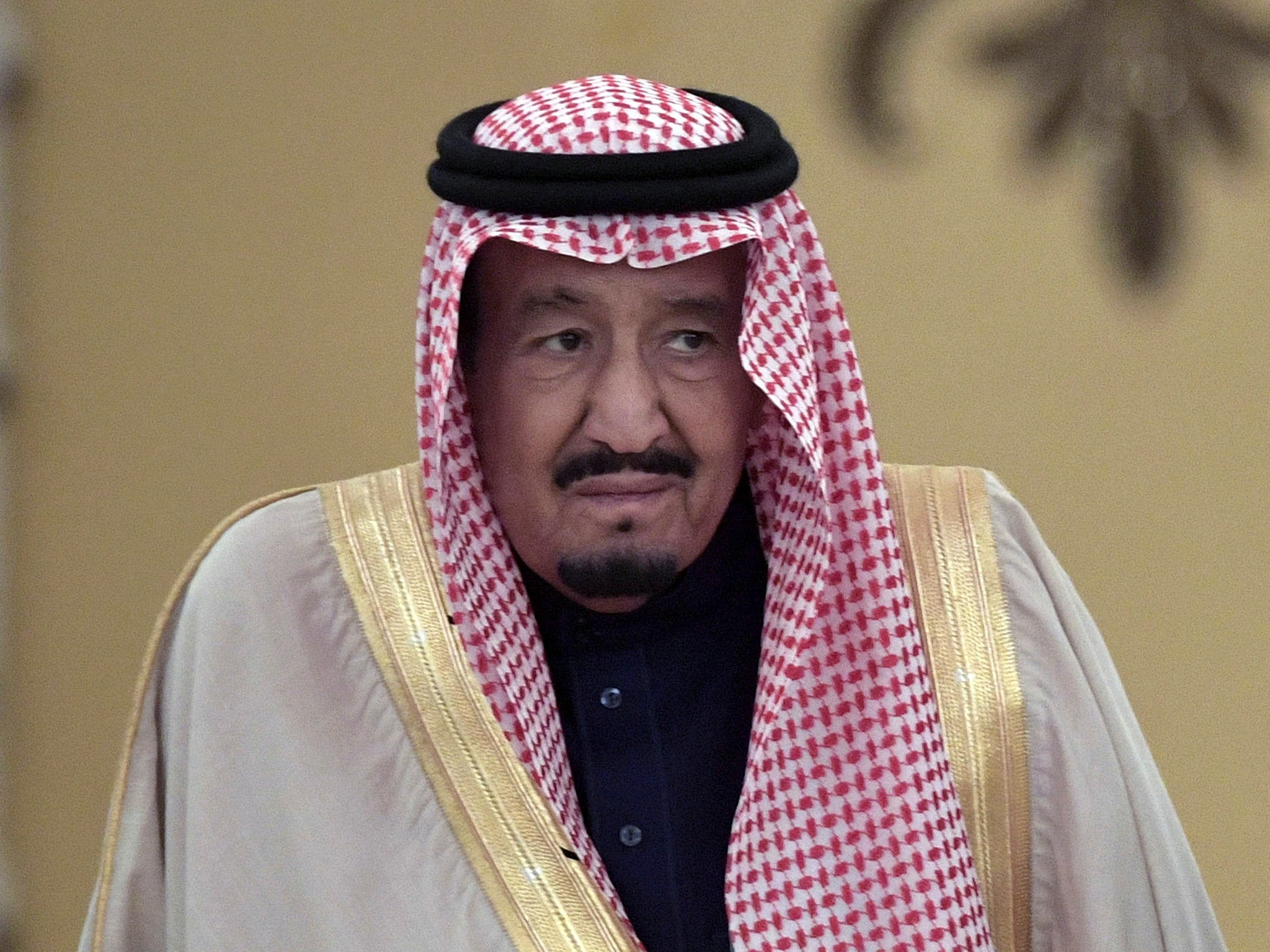Saudi princes among dozens detained by new anti-corruption committee
Comes as part of a series of sweeping changes introduced by King Salman

Your support helps us to tell the story
From reproductive rights to climate change to Big Tech, The Independent is on the ground when the story is developing. Whether it's investigating the financials of Elon Musk's pro-Trump PAC or producing our latest documentary, 'The A Word', which shines a light on the American women fighting for reproductive rights, we know how important it is to parse out the facts from the messaging.
At such a critical moment in US history, we need reporters on the ground. Your donation allows us to keep sending journalists to speak to both sides of the story.
The Independent is trusted by Americans across the entire political spectrum. And unlike many other quality news outlets, we choose not to lock Americans out of our reporting and analysis with paywalls. We believe quality journalism should be available to everyone, paid for by those who can afford it.
Your support makes all the difference.A new anti-corruption committee has reportedly detained 11 princes, four current ministers and dozens of former ministers in Saudi Arabia.
It came as part of a series of sweeping changes by the Middle Eastern nation’s King Salman who removed one of the royal family's most prominent members as head of the National Guard and boosted the kingdom's young crown prince.
None of those detained were named and it is unclear what, if any, charges they face. But Saudi broadcaster Al-Arabiya reported that new investigations had been launched into the 2009 Jeddah floods and the Mers virus outbreak in 2012.
The cabinet reshuffle saw Prince Miteb bin Abdullah replaced as minister of the National Guard by Khaled bin Ayyaf.
Prince Miteb, the preferred son of the late King Abdullah, was once thought to be a leading contender for the throne before the unexpected rise of Prince Mohammed two years ago.
He had inherited control of the National Guard, an elite internal security force built out of traditional tribal units, from his father, who ran it for five decades.
He was the last remaining member of Abdullah's branch of the family to hold a position in the upper echelons of the Saudi power structure.
Prince Mohammed, the king's 32-year-old son, already serves as defence minister and was named heir to the throne in a June reshuffle that sidelined his older cousin, Prince Mohammed bin Nayef who had also served as interior minister.
He has been responsible at the same time for running Saudi Arabia’s war in Yemen, dictating an energy policy with global implications and behind the plans for the kingdom to build a future after oil.
Prince Mohammed, who has pledged to go after corruption at the highest levels, will now also head up the new anti-corruption body, which was given broad powers to investigate cases, issue arrest warrants and travel restrictions, and freeze assets.
"The homeland will not exist unless corruption is uprooted and the corrupt are held accountable," the royal decree said.
The move consolidates Crown Prince Mohammed's control of the kingdom's security institutions, which had long been headed by separate powerful branches of the ruling family.
Reuters contributed to this report
Join our commenting forum
Join thought-provoking conversations, follow other Independent readers and see their replies
Comments